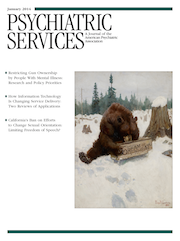13,500 Days Without a Drink: A Gift From God, Reflections on Long-Term Sobriety
The author of 13,500 Days Without a Drink is anonymous and describes himself as someone who has struggled with alcoholism for decades. His difficulties with alcohol dependence began after he served as a marine during the Vietnam War. After decades of chaos, including a diagnosis of posttraumatic stress disorder, the author seems to have achieved some peace through Alcoholics Anonymous and mental health treatment. However, he emphasizes he is never completely free of his struggle with alcohol use.
13,500 Days Without a Drink seems primarily to address others struggling with alcoholism. The book begins with a brief description of the author’s experiences in Vietnam and the military. As expected, this section is emotional and moving. Beyond this point, the book begins its incarnation as a series of essays regarding Alcoholics Anonymous. It is composed of many short chapters, usually spanning one to five pages, and each is usually a reflection on concepts such as courage or sacrifice. Early in the book it is clear that the author is a passionate advocate of Alcoholics Anonymous in its traditional form, including the central emphasis on the need for God. There is a preaching quality to the writing, as many chapters end with the phrase “God bless.”
For the mental health professional 13,500 Days Without a Drink may provide some insight into the perspective of one struggling with alcohol dependence and overcoming adversity. The moments of personal history are poignant. The author’s review of key historical milestones in the formation of Alcoholics Anonymous is also interesting. However, much of the information is presented in a fragmented manner, which leads to a certain degree of repetition. The mental health professional will likely find this book to be beneficial mostly as a source of inspiration to those who are in the midst of their own fight with alcoholism and to promote the efficacy of Alcoholics Anonymous.



